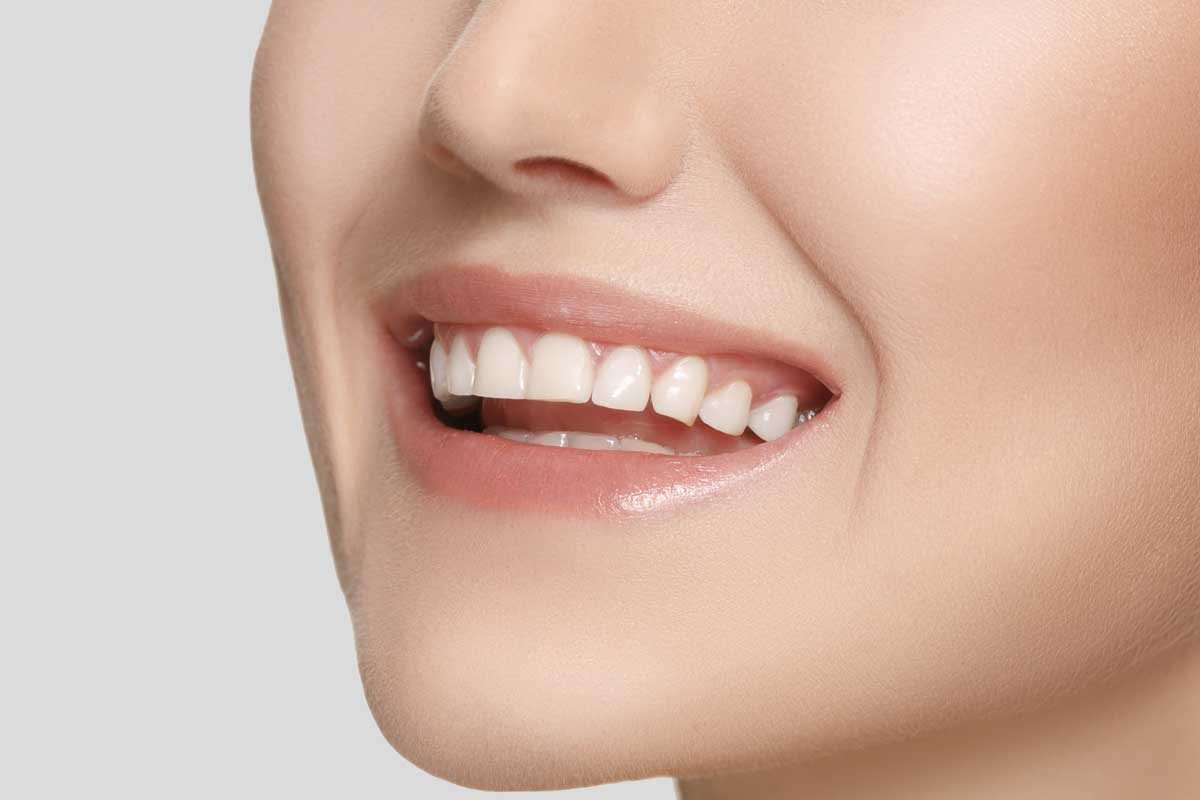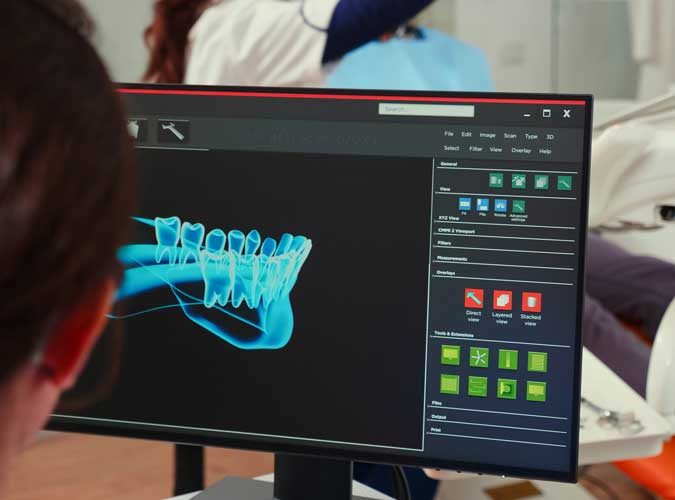

Wisdom teeth removal operation is a procedure to pull out the third molars, which generally arise between ages 17 and 24. We have at least one impacted wisdom tooth, meaning it doesn’t have enough space to grow naturally
By removing your wisdom teeth, either because an impaction has been identified or their potential to cause issues, you can ensure they don’t damage the surrounding teeth and bones.
These signs may mean that the wisdom teeth have erupted and should be extracted before they cause more serious situations.
The wisdom teeth may partially erupt. That means the teeth have partially surfaced and have no space in the mouth to come in fully. When the third molar tooth doesn’t erupt at all, we call them completely impacted teeth. If they are not causing issues or are seen as possible, many dentists will choose to watch them over time. If the wisdom teeth are causing or are likely to cause problems, most oral health specialists will recommend you to remove them instantly. Early removal will help avert problems, such as an impacted tooth that causes the roots of the second molar to resorb.


When wisdom teeth show signs, the roots become longer and the jaw bone denser. When removing impacted wisdom teeth in your thirties, forties or beyond is required, the postoperative duration can be extended, and there is a more elevated complication rate. Treating these complications is often more complicated and slightly predictable than with a younger patient. Healing may be slow, and the chance of infection can be increased. Suppose your impacted wisdom teeth are not removed in your teenage years or early in your twenties and are completely impacted in bone. In that case, waiting until a localized problem (such as cyst formation or localized gum disease and bone loss) may be advisable. Generally, you will cure quicker, more predictably and have fewer complications if treated in your early twenties or teens.
It depends on the type of your operation and the number of teeth you want to remove; wisdom teeth removal is divided into surgical and non-surgical types. The surgical operation takes about 45 minutes, but the procedure takes a couple of hours with numbing and final processes. With anesthesia, you won’t feel any pain or discomfort, and this step will check multiple times by your dentist. You might only feel some pressure but be sure; there is no pain here!
Steps for a typical procedure:
Our dentist starts by numbing the wisdom teeth and surrounding tissues with a local anesthetic.
The dentist removes any gum tissue covering the wisdom tooth’s area to access the sightly wisdom tooth.
An impacted wisdom tooth might be completely or partly surrounded by bone. If this is the case, a headpiece is utilized to drill through and extract the bone covering the tooth.
Various surgical instruments lightly relieve the impacted wisdom teeth from any connective tissue in the tooth’s socket when they are visible to the dentist. The surgeon may also divide the tooth into sections for more painless removal.
Once the wisdom tooth is loose or has been fully sectioned, it is ready to be extracted. The surgeon will use surgical tools specially developed to remove the tooth fully.
When the wisdom teeth are gone, the surgeon may add stitches to close up the site. Sometimes it is essential when impacted wisdom teeth are extracted or when the healthcare provider feels the patient will be better cured with stitches.


The dentist will prepare a gauze for you to bite down on to help blood clots in the area. Instantly after surgery, you may feel mild outcomes of the anesthesia, including dizziness, nausea and shivering.
We ask you to move to a recovery room where we can monitor you. When your dentist has determined that you are regular and breathing naturally, you can go home. Usually, you’ll spend shorter than your tooth extraction procedure in the recovery room.
After the surgery, you will feel swollen and dizzy. You may not feel much pain immediately, but it will presumably increase as the local anesthetic disappears in the hours after surgery.
At-home Generally, there are specific instructions for wisdom tooth extraction aftercare that every extraction patient should observe to avert complications and boost the good wisdom tooth extraction recovery of the surgery area.
Straws can cause the same suction as smoking cigarettes, increasing your risk of dry socket. Keep away from using straws for at least one week following any removals.
Alcohol can lead to dry sockets by disbanding the clot within the socket. It is important to your recovery that you avoid alcohol for at least one week following any tooth extractions.
It is performed to save and repair a tooth that is badly decayed or has become infected. During a root canal procedure, the infection and pulp are removed, and the inside of the tooth is cleaned and sealed.
Smoking after tooth removal greatly raises the risk of dry sockets. The sucking action as you pull on a cigarette can disturb the blood clot. Smokers have a much higher risk for postoperative complications, especially dry sockets. To recover as fast as possible, you should stop smoking for two weeks after your removal.
Carbonated beverages have the same influence on a clot within the removal socket as alcohol does. It is necessary to comprehend that this applies to all carbonated drinks, even sparkling water. Avoid using these for at least a week after your dental surgery.
Gentle is the operative term here. To keep the site clean, rinse your mouth with an alcohol-free mouthwash or simple warm salt water after surgery. However, swirling and vigorous swishing are not suitable for a healing socket. Make sure you use only soft motions and very delicate spitting motions. Destructive spitting could also disturb the clot.
Your surgeon or dentist will prescribe antibiotics, anti-inflammatory medication, or pain relievers as required by your specific case. Taking these as directed not only prevents many postoperative complications; it also helps you heal more quickly.

When your wisdom tooth pulled out, you must follow some rules to help your socket cure faster. Drinking and eating are the most important fields of curing procedures, and you will avoid wisdom tooth extraction side effects by eating carefully. Your food must be light, easy to chew and not hot.
Wisdom tooth extraction costs differ and depend on the type of surgery, the number of teeth, the gum situation and the complication of dental surgery. At DesertRose, we tried to price it affordably so that anyone could afford it. Schedule your wisdom teeth removal in Aurora today. Here at DesertRose, we provide an easy-going surgery that a patient feels comfortable with and a non-suffering operation. Contact us here at Yonge St., Aurora, to terminate your dental pains.
While the recovery procedure is followed, the patient will feel stiff, swelling, bruising, bleeding, numbness, and some pain in the area. Contact our dentist if the socket becomes dry or bleeds excessively a couple of days after surgery.
Do not clean the teeth right next to the healing area for the rest of the day. However, it would help if you started brushing and flossing the next day. Be careful when brushing; be gentle near the extraction site. Use a manual toothbrush, not an electric one, for the first two weeks after surgery.
You will feel pain after wisdom tooth removal, usually from 2 days to one week, unless you undergo an infection or dry socket, which happens when the blood clot gets disturbed from the removal area.
Unit #1, 15450 Yonge St.
Aurora
ON L4G 0K1